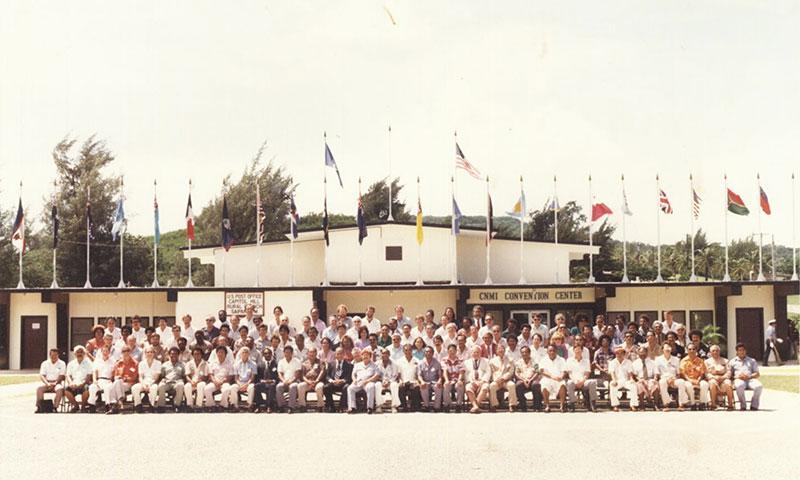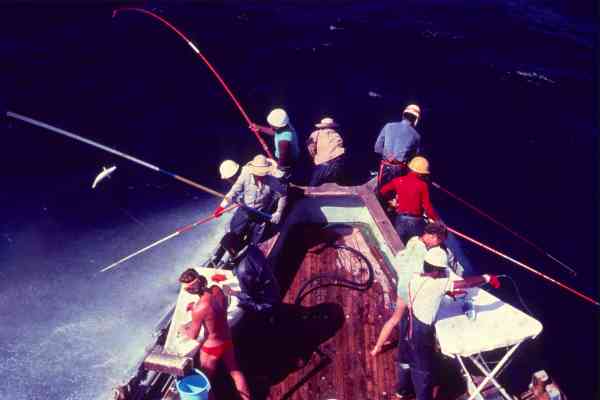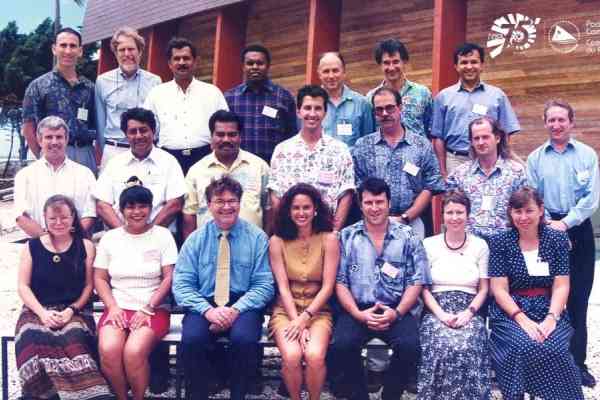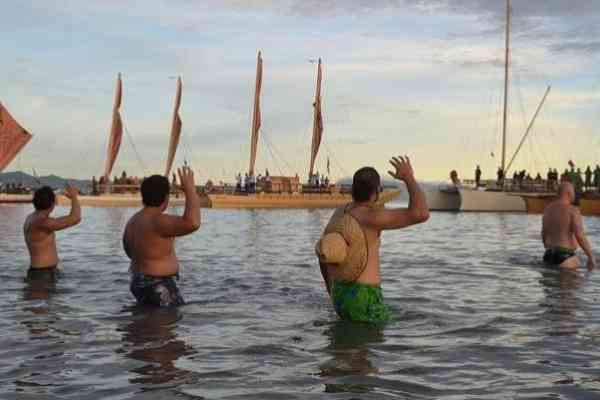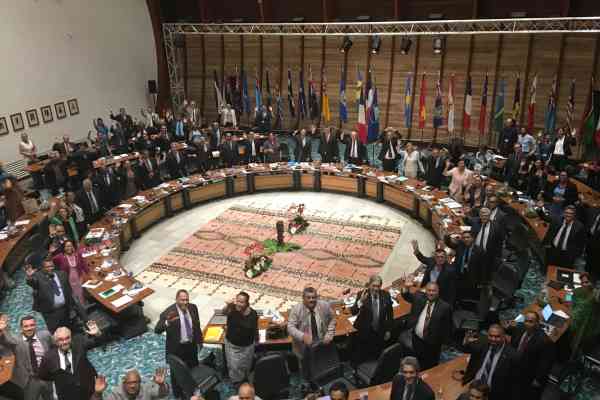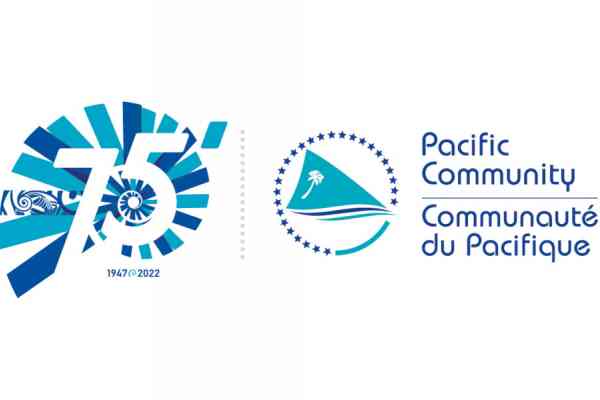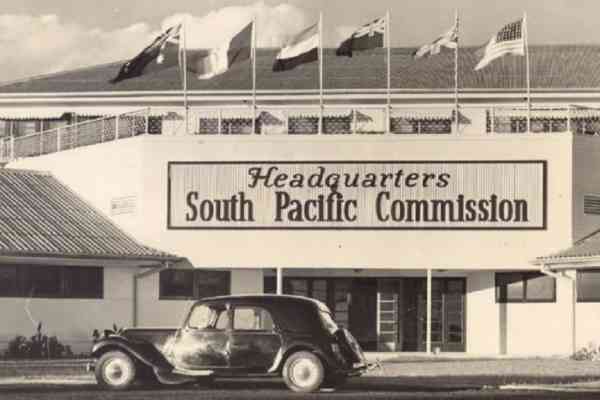Photo: 1983, Pacific Community (SPC) annual Conference held in Saipan (Mariana Islands) - Credit: SPC
(contenu disponible en anglais uniquement)
1983, the year that changed everything: The Pacific Community at 75
The Pacific Community turned 75 on the 6th of February 2022. As we mark 75 years of the Pacific Community’s Service to the region, on the 6th of each month we will feature a key moment in history for the organisation.
When formed in 1947, the structure and management of SPC were very much a reflection of geopolitical reality. The organizations founding members, Australia, France, The Netherlands, New Zealand, the United Kingdom and the United States, hoped the regional body would help to bring stability to the Pacific, but ironically there was no high-level representation from the territories within the region itself. However, as decolonization efforts across the globe gained momentum and the importance of voices from the developing world become clear, the calls for change were increasing.
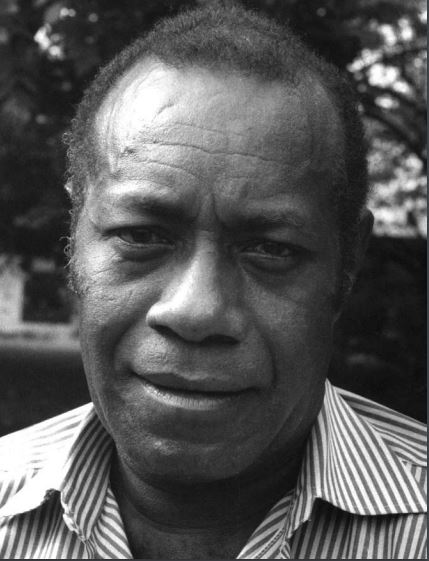
When SPC's Secretary-General Francis Bugotu took up his position in 1982, he found himself leading an organization in which his own country of the Solomon Islands had no direct voice. In early 1983 Mr. Bugotu highlighted the challenge and his deep concern over the future of SPC, writing that ‘the present functioning of the organisation has in large measure outrun its constitutional structure … and change is necessary’.
That change came at 23rd South Pacific Conference in Saipan in October 1983, when a resolution was passed that finally gave all 27 Pacific governments and administrations full and equal membership in Pacific Community. In one fell swoop, American Samoa, Federated States of Micronesia, French Polynesia, Guam, Kiribati, Marshall Islands, New Caledonia, Northern Mariana Islands, Palau, Pitcairn Islands, Tokelau, Tonga, Vanuatu, and Wallis and Futuna, became full members of the Pacific Community.
The 1983 Saipan resolution was a milestone for SPC, marking its evolution from an externally administered organisation to one that was truly representative of all Pacific Island people. All members would now share equally in decision making. Just as importantly, by ignoring the political standing of members, the decision affirmed SPC’s status as a non-political body. The resolution saw all member governments and administrations take on ownership and financial responsibility for the organizations, with contributions based on an agreed formula.
1983 also the creation of the CRGA (Committee of Representatives of Governments and Administrations), and clearly established the Pacific Conference as the highest decision-making body. The effect of these changes was to re-emphasise that SPC, unlike other regional organisations, was the only body that regularly brought together representatives of all countries and territories in the region, and that its activities would be developed, owned, and controlled by its members.
Three years later, in his last term as Secretary-General, Francis Bugotu stood before the expanded SPC membership at the 26th South Pacific Conference in Papeete. Looking back at him were now leaders from across the entire Pacific, a true representation of a ‘Pacific Community’. He spoke of SPC’s new determination to ensure that development projects responded to the needs expressed by island people themselves and expressed his satisfaction over how governments throughout the region were evaluating their own resources and opportunities and setting their own goals.
The 1983 change into a fully representative, equal, member led organization has remained as the very foundation of SPC since that time, embraced by both Pacific members as well as the original founding governments.
As French Prime Minister, Jacques Chirac noted during a visit to SPC's headquarters in New Caledonia, ‘The successes of the [SPC] in fostering regional development has given us an idea of what can be achieved through trustful cooperation between states and territories working together on an equal footing for their common prosperity.’
